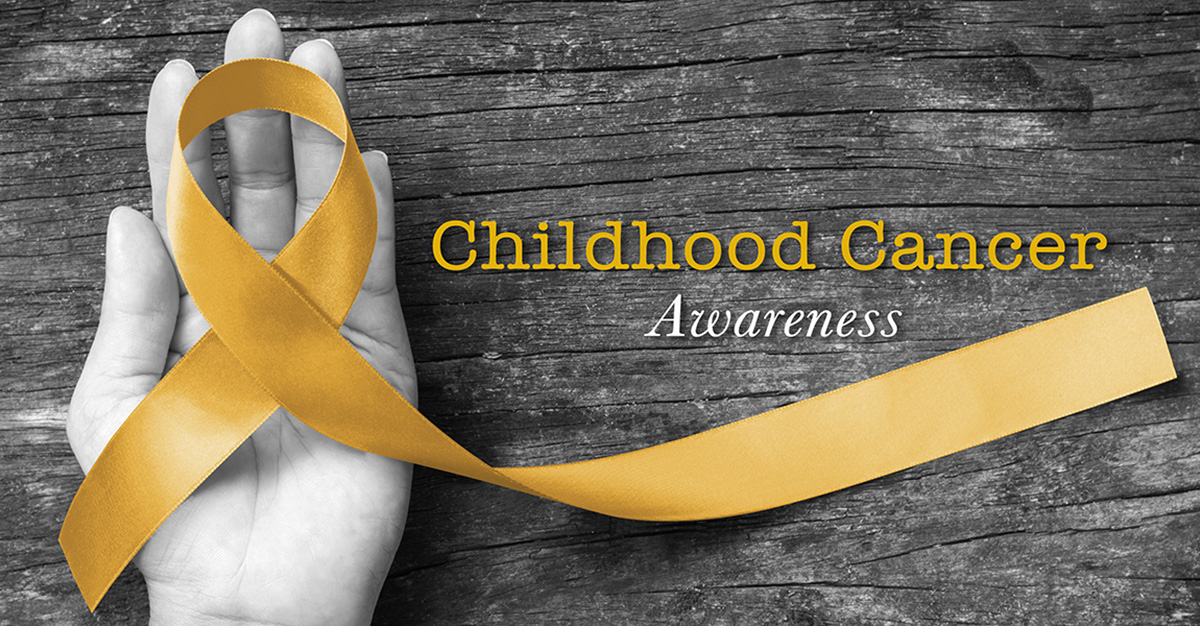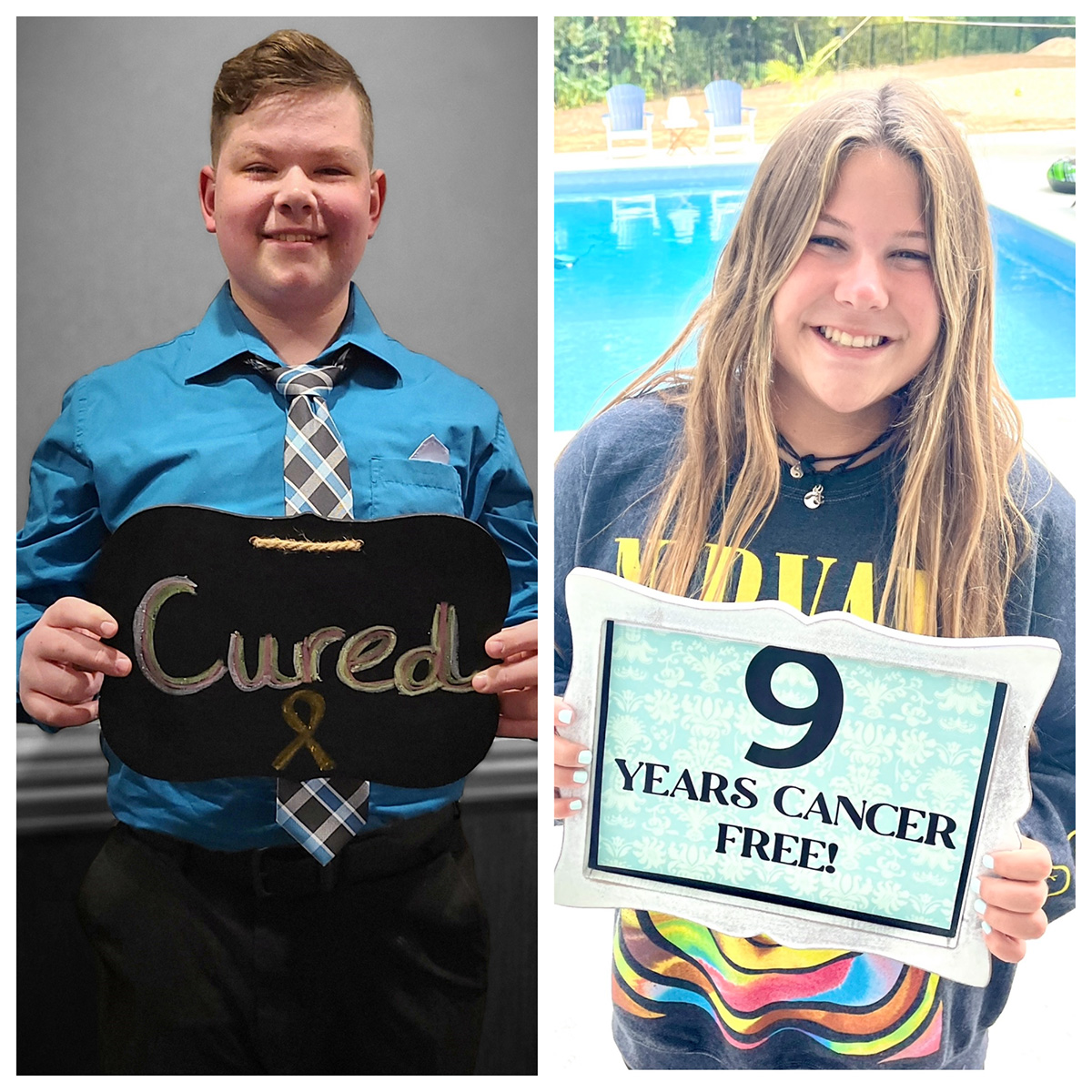
According to the American Childhood Cancer Organization, each year in the United States there are an estimated 15,800 children between the ages of birth and 19 years old who are diagnosed with cancer.
Cancer is also the second leading cause of death in U.S. children under the age of 15. According to the American Cancer Society, approximately 1,000 children in this age group are expected to succumb from cancer in 2023.
Standard treatment options for most cases of pediatric cancer are surgery, chemotherapy and radiation therapy. While these options work for some children, there are many who do not respond well to these treatments – and they need new options.
September is Childhood Cancer Awareness Month and an opportunity for Alliance for Cancer Gene Therapy (ACGT) to share the progress being made to advance cell and gene therapy research and address new therapy options for children – and how these therapies have already helped some children defeat cancer.
ACGT’s commitment to curing childhood cancers goes back two decades
It was 20 years ago when ACGT funded the research of Carl June, MD, of the University of Pennsylvania. Dr. June used funding from ACGT to research and develop the first successful CAR T-cell therapy for cancer.
This CAR T-cell therapy was featured in a landmark clinical trial for people diagnosed with leukemia. The clinical study included patient Emily Whitehead, the first child ever treated with CAR T-cell therapy, who today, 11 years later, is considered cured.
The trial resulted in the first FDA-approved CAR T-cell therapy for cancer: Kymriah’s approval in 2017 for patients up to 25 years old with acute lymphoblastic leukemia. Since then, there have been five additional CAR T-cell therapies approved by the FDA for various blood cancers in both children and adults.
ACGT was the driving force behind this extraordinary breakthrough, which has led to stories of children defeating their cancer thanks to CAR T-cell therapy.
Two stories of survival

Today, two patients from that original CAR T-cell therapy clinical trial are reaching an extraordinary milestone: 10 years cancer-free.
These survival stories are a result of ACGT’s mission to help scientists develop novel cell and gene therapies capable of transforming how children with cancer are treated.
Tori Lee, who was 9 years old when she received CAR T-cell therapy, was diagnosed with acute lymphoblastic leukemia.
Multiple rounds of chemotherapy did not defeat her cancer, which led to Tori and her family choosing the cell and gene therapy trial over other options.
That decision paid off, as Tori has never had a relapse since receiving her CAR T cells in April 2013.
She reached 10 years cancer-free this year and is currently enrolled in college at the University of North Carolina.
“These T-cell therapies are a game-changer. They allowed many families – adults and children – to benefit from a new way to approach cancer treatment and have such a better quality of life during treatment. They take away the harshness of antiquated therapies.” — Dana Lee, Tori Lee’s mother
Austin Schuetz, who was 2 years old when he was diagnosed with leukemia and turned to CAR T-cell therapy when standard treatment options didn’t work. Austin was 5 years old when he enrolled in the landmark clinical trial – after multiple failed attempts with chemotherapy and even a relapse after a bone marrow transplant.
Austin, who is 15 years old now, will be 10 years cancer-free in October of 2023. His mom, Kimberly, who is a medical professional and now collects patients’ T cells in preparation for CAR T-cell therapy as part of her job, tells Austin’s story to her patients.
“I’ve had people say to me, ‘I’m going to think of Austin when I do this. Thank you for sharing,’” Kimberly said.
ACGT turns focus toward children with solid tumors
According to the Center for International Blood & Marrow Transplant Research, there have been 6,343 cancer patients (children and adults) from 2016-2021 to receive CAR T-cell therapy. Each year has had more CAR T-cell patients than the previous year, with approximately 2,100 patients receiving this cell and gene therapy in 2021 (the latest year of reported data).
The successes in cell and gene therapy for blood cancers has inspired ACGT’s alliance of doctors, researchers, donors and partners to aim for the same breakthroughs with solid tumors, such as brain cancer and sarcomas.

“While we’ve made great strides in improving pediatric leukemia patients, when you look within pediatric cancer cases, there are a few important cancer types where progress is lacking,” said ACGT Research Fellow Dr. Stephen Gottschalk, of St. Jude Children’s Research Hospital.
Dr. Gottschalk received funding from ACGT for a cell and gene therapy research project focused on pediatric sarcomas, cancers that develop in the bones and soft tissues.
He recently finished the grant and said it may lead to a clinical trial.
ACGT continues to fund several research projects focused on cell and gene therapies for pediatric cancers, recently awarding a grant to Hideho Okada, MD, PhD, of the University of California, San Francisco. Dr. Okada is running a clinical trial for children with a rare type of brain cancer called diffuse midline glioma.
“Despite the clinical significance, we often face denials from industry partners for collaborating on pediatric tumors due to the high risk of running studies for children and the small number of pediatric cases for most cancers. It is tremendous that ACGT understands the scientific importance and funding gaps by providing us with generous and strong support.” — Hideho Okada, MD, PhD, ACGT Research Fellow
How you can help advance cell and gene therapy research for childhood cancers
You can help ACGT continue to fund research to address pediatric cancers. If you’d like to join our mission of advancing cell and gene therapy research, please donate through our secure donation page.
We also invite you to learn more about how ACGT has helped advance cell and gene therapies. Sign up for our free monthly email newsletter and other communications to see how ACGT is working to create a cancer-free future.



